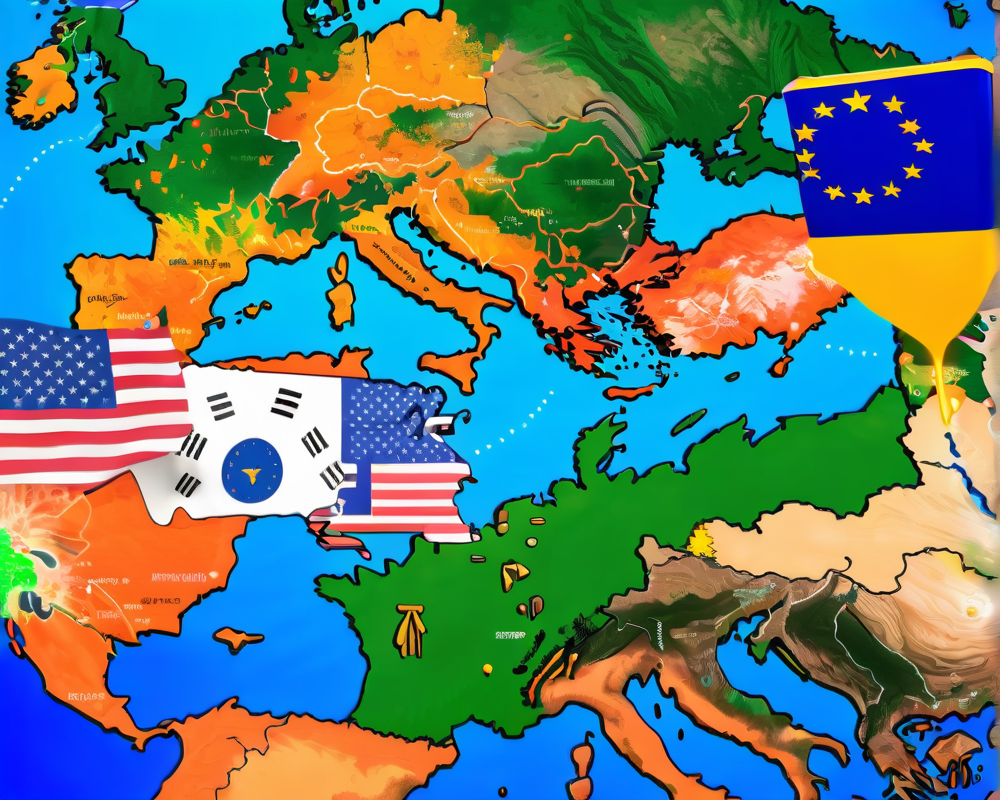Crypto’s New Role in Times of Crisis
In the chaotic world we currently inhabit, where traditional financial systems are often caught in geopolitical crossfire, cryptocurrencies emerge as unexpected heroes. As the crisis in Ukraine unfolds, digital assets are doing more than filling wallets; they’re filling gaps in humanitarian aid and providing lifelines for everyday people. When the bombs start falling, the last thing on most folks’ minds is whether their Bitcoin is up or down. Yet here we are, with crypto at the front lines of the financial battlefield.
The Human Side of Cryptocurrency in Ukraine
As Ukrainians navigate a heartbreaking exodus from their homes, many turn to crypto as a form of financial sustenance. Since the start of the conflict, donations in Bitcoin (BTC) and Ether (ETH) have poured in, totaling around $108 million. Think about that for a moment: what could that possibly look like in a physical form? Literally tons of coins? The beauty of blockchain technology means that unlike our great-grandparents’ treasure hunts, we can trace exactly where this money goes. Transparency like this not only builds trust but also showcases how efficient these donations can be—$15 million in military supplies alone, all with just a few clicks.
Faster Transactions, More Impact
When it comes to getting funds where they’re needed, crypto is the Usain Bolt of financial transactions. Traditional platforms like GoFundMe might take days to process a transfer, but in the crypto world, that’s practically an eternity. The slowest of cryptocurrencies can take six minutes to confirm a transaction, while good ol’ cash transfers can drag on like a soap opera plot. Not to mention that crypto doesn’t care if a bank is shut down or if your account is frozen—ordinary Ukrainians can remain financially viable even in the most unfriendly environments.
The Russian Crypto Conundrum
Across the border, the narrative takes a twist. The sanctions imposed on Russia have put many citizens in a tight spot, as most of their bank accounts are now frozen like a popsicle left on the counter. After a rash of withdrawals totaling nearly $23 billion, Russian citizens are exploring the wild world of cryptocurrency. The value of the ruble has taken a nosedive—think less ‘calm financial waters’ and more ‘wave pool at a water park.’ Many are scrambling to convert their depreciating rubles into crypto like Tether (USDT) to preserve their dwindling wealth.
The Ethical Tightrope of Crypto Use
Critics constantly raise the alarm that crypto is merely a tool for wealthy oligarchs to dodge sanctions. However, as Brian Armstrong, CEO of Coinbase, points out, the traceable nature of blockchain means that this isn’t just a wild west scenario with no oversight. The reality is that Russian citizens using crypto are often just looking to keep their heads above water. Labeling them as allies of the state because they utilize the same financial freedom tools as oligarchs misses a vital point: not all users are created equal. As sanctions target powerful figures, everyday Russians find themselves drowning in a sea of unfortunate consequences.
Conclusion: A Call for Clarity and Compassion
As we sip our coffee, debating the implications of cryptocurrency on global politics, it’s essential to remember the human beings behind these statistics and transactions. The Ukraine crisis has illuminated crypto’s potential as not just an option, but a necessity for many. While empires rise and fall, ordinary people are using digital assets to empower themselves and seek help during the darkest hours. It’s time to embrace the narrative that crypto can be a tool for good, and remind ourselves that sometimes, it’s the regular folks that change the world.




